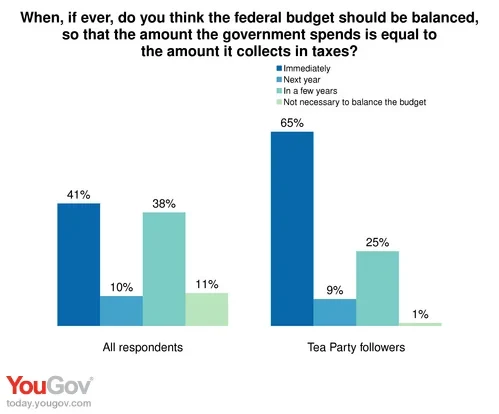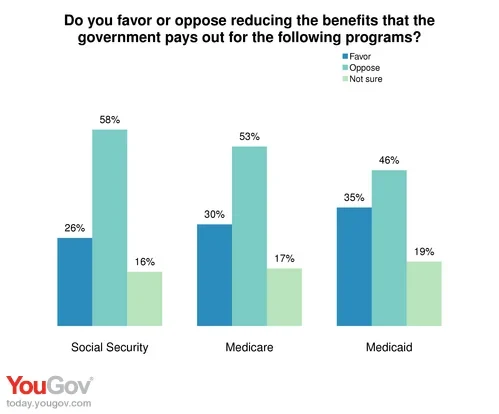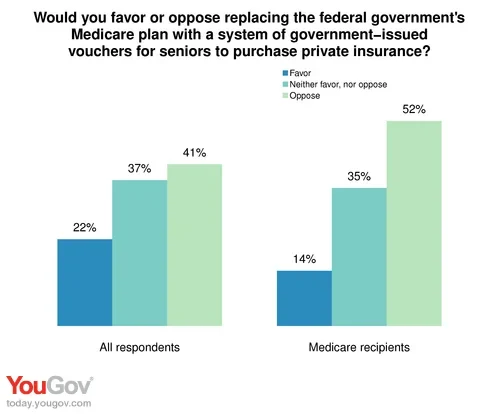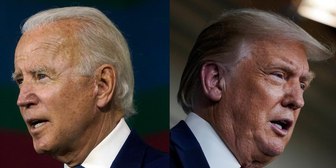Republicans and Democrats in Congress barely averted a government shutdown Friday and agreed on a budget that should be adopted this week, but the process brought little acclaim to either party or to the President, according to the latest Economist/YouGov Poll. Americans — especially Republicans — continue to worry about the budget deficit, although they don’t have a solution.
Nearly nine in ten Americans are concerned about the size of the federal budget deficit. It ranks as the second most important issue for the public, after the economy and tied with health care. 13% cite it (compared with 36% who name the economy. But the deficit is even more important for Republicans (ranking a closer second to the economy and cited by 22% of them), and with those who consider themselves part of the Tea Party (29% of them name it). Four in ten overall want the budget balanced immediately; even more (65%) of Tea Party identifiers would.

But there are limits to what the public itself is willing to do to reduce the federal budget deficit. 47% would be willing to accept cuts in programs that affect people like themselves to do it. Even more Republicans and Independents say they would. Fewer — and even fewer Republicans – support tax increases on people like themselves as a means of deficit reduction.
Are you willing to accept cuts to programs that benefit people like you in order to reduce the federal budget deficit?
| Party | ||||
|---|---|---|---|---|
Definitely yes | 20% | 8% | 36% | 27% |
Probably yes | 27% | 24% | 40% | 27% |
Probably no | 17% | 24% | 9% | 16% |
Definitely no | 21% | 32% | 8% | 22% |
Not sure | 14% | 12% | 7% | 8% |
Are you willing to accept a tax increase on people like you in order to reduce the federal budget deficit?
| Party | ||||
|---|---|---|---|---|
Definitely yes | 9% | 14% | 4% | 10% |
Probably yes | 21% | 27% | 17% | 23% |
Probably no | 25% | 25% | 28% | 24% |
Definitely no | 34% | 24% | 45% | 37% |
Not sure | 11% | 10% | 7% | 6% |
But support for cutting spending has dropped five points in the last two months. In early February, 52% said they would be willing to have spending cut on programs that affected them.
When it comes to changes in entitlement programs, the largest potential future drain on the federal budget, Americans are much less willing to make cuts. Just under half see the cost of programs like Social Security and Medicare as major economic problems (current Medicare recipients disagree). More Americans (44%) say that the government can insure the future of these programs without raising taxes or cutting benefits then think that can’t be done (33%). And when asked whether benefits from these programs should be reduced, majorities say no.

Slightly more would reduce benefits for Medicaid, which provides health care services to those too poor to afford them, but nearly half oppose cuts there, too.
Republican Paul Ryan, the Chair of the House Budget Committee, has proposed replacing Medicare with a program that would give seniors vouchers with which they could purchase health insurance. Four in ten Americans say they have yet to make up their minds about this proposal, but those who have are negative. A majority of those currently on Medicare oppose this change.

Republicans support the proposal (42% to 27%); Tea Party supporters are even more in favor (49% to 28%).








